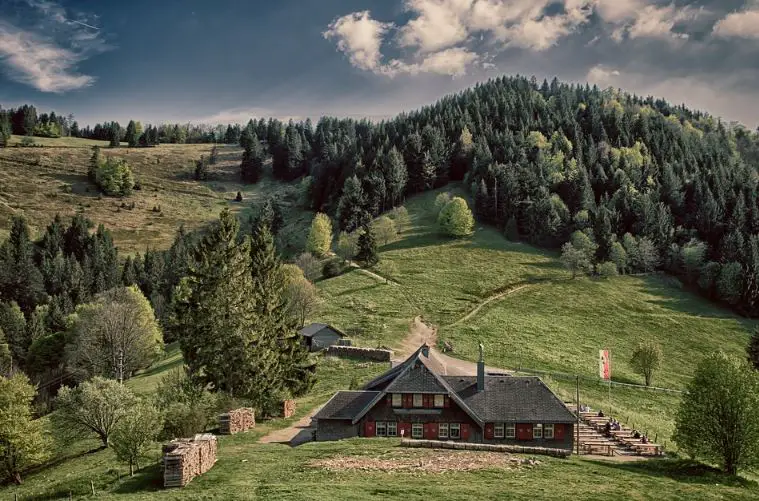How can I learn about German history and heritage?
Post ByAdequate Travel
Summary
Are you interested in learning about German history and culture? With its vibrant cities, rich culture and fascinating stories, German history and heritage can provide you with a wealth of knowledge that can help you make connections and find fresh perspectives on the world. This blog will provide an overview of resources that can guide you in learning about the complex and dynamic history of Germany.
Keep in mind that travel guidelines and travel rules may change anytime, so regularly check for updates to ensure a hassle-free and memorable travel experience.
Learning about German history and heritage can be an intriguing and enriching experience. Here are some steps you can follow to delve into this fascinating subject:1. Books and literature: - Start by reading books that offer a comprehensive overview of German history, such as "A Concise History of Germany" by Mary Fulbrook or "The Germans: Power Struggles and the Development of Habitus in the Nineteenth and Twentieth Centuries" by Blackbourn and Eley. - Look for titles that focus on specific eras or events, such as "The Rise and Fall of the Third Reich" by William L. Shirer for Nazi Germany or "Iron Kingdom: The Rise and Downfall of Prussia, 1600-1947" by Christopher Clark to understand the history of Prussia. - Consider exploring literature from German authors, both classic and contemporary, to gain insights into German culture and heritage. For example, works by Johann Wolfgang von Goethe, Arthur Schopenhauer, Heinrich Heine, or contemporary writers like Günter Grass or Herta Müller.2. Museums and exhibitions: - Visit German museums, both in Germany and those dedicated to German history abroad. Institutions like the Deutsches Historisches Museum in Berlin, the Germanisches Nationalmuseum in Nuremberg, or the Haus der Geschichte in Bonn provide immersive and informative experiences. - Attend special exhibitions that focus on specific aspects of German history, like the Berlin Wall Museum or the Topography of Terror in Berlin, which documents the crimes of the Gestapo and the SS during Nazi rule.3. Historical sites and landmarks: - Plan trips to historically significant places in Germany, such as Berlin with its numerous landmarks like the Brandenburg Gate, the Berlin Wall Memorial, and the Reichstag building. - Visit historical sites like Neuschwanstein Castle in Bavaria, the Cologne Cathedral, or the Dachau concentration camp memorial site near Munich to gain a deeper understanding of various periods of German history.4. Online resources and documentaries: - Utilize online resources, such as history websites, databases, and digital archives, to access information and primary sources pertaining to German history. - Watch documentaries and films that explore pivotal episodes in German history, for example, the documentary series "The Third Reich Trilogy" by Lutz Hachmeister or the film "Downfall" (Der Untergang) that depicts the final days of Adolf Hitler.5. Language learning: - Consider learning the German language, as it allows for a more detailed exploration of German history through original texts, sources, and conversations with native speakers.6. Academic courses and lectures: - If time and resources permit, enroll in formal academic courses or attend lectures at universities that offer history programs, including German history as a subject of study.Remember, learning about German history and heritage is an ongoing process, requiring curiosity, open-mindedness, and a willingness to explore multiple perspectives. Enjoy the journey!
Learning about German history and heritage can be an intriguing and enriching experience. Here are some steps you can follow to delve into this fascinating subject:1. Books and literature: - Start by reading books that offer a comprehensive overview of German history, such as "A Concise History of Germany" by Mary Fulbrook or "The Germans: Power Struggles and the Development of Habitus in the Nineteenth and Twentieth Centuries" by Blackbourn and Eley. - Look for titles that focus on specific eras or events, such as "The Rise and Fall of the Third Reich" by William L. Shirer for Nazi Germany or "Iron Kingdom: The Rise and Downfall of Prussia, 1600-1947" by Christopher Clark to understand the history of Prussia. - Consider exploring literature from German authors, both classic and contemporary, to gain insights into German culture and heritage. For example, works by Johann Wolfgang von Goethe, Arthur Schopenhauer, Heinrich Heine, or contemporary writers like Günter Grass or Herta Müller.2. Museums and exhibitions: - Visit German museums, both in Germany and those dedicated to German history abroad. Institutions like the Deutsches Historisches Museum in Berlin, the Germanisches Nationalmuseum in Nuremberg, or the Haus der Geschichte in Bonn provide immersive and informative experiences. - Attend special exhibitions that focus on specific aspects of German history, like the Berlin Wall Museum or the Topography of Terror in Berlin, which documents the crimes of the Gestapo and the SS during Nazi rule.3. Historical sites and landmarks: - Plan trips to historically significant places in Germany, such as Berlin with its numerous landmarks like the Brandenburg Gate, the Berlin Wall Memorial, and the Reichstag building. - Visit historical sites like Neuschwanstein Castle in Bavaria, the Cologne Cathedral, or the Dachau concentration camp memorial site near Munich to gain a deeper understanding of various periods of German history.4. Online resources and documentaries: - Utilize online resources, such as history websites, databases, and digital archives, to access information and primary sources pertaining to German history. - Watch documentaries and films that explore pivotal episodes in German history, for example, the documentary series "The Third Reich Trilogy" by Lutz Hachmeister or the film "Downfall" (Der Untergang) that depicts the final days of Adolf Hitler.5. Language learning: - Consider learning the German language, as it allows for a more detailed exploration of German history through original texts, sources, and conversations with native speakers.6. Academic courses and lectures: - If time and resources permit, enroll in formal academic courses or attend lectures at universities that offer history programs, including German history as a subject of study.Remember, learning about German history and heritage is an ongoing process, requiring curiosity, open-mindedness, and a willingness to explore multiple perspectives. Enjoy the journey!
Suggested Questions
- Drachenfels, Königswinter: Horror Story, History & Paranomial Activities
- Heidelberger Schlossquelle, Heidelberg: Horror Story, History & Paranomial Activities
- Burg Rheinstein, Trechtingshausen: Horror Story, History & Paranomial Activities
- Schloss Drachenburg, Königswinter: Horror Story, History & Paranomial Activities
- Hamburger Dom, Hamburg: Horror Story, History & Paranomial Activities
- Andernach Geysir, Andernach: Horror Story, History & Paranomial Activities











